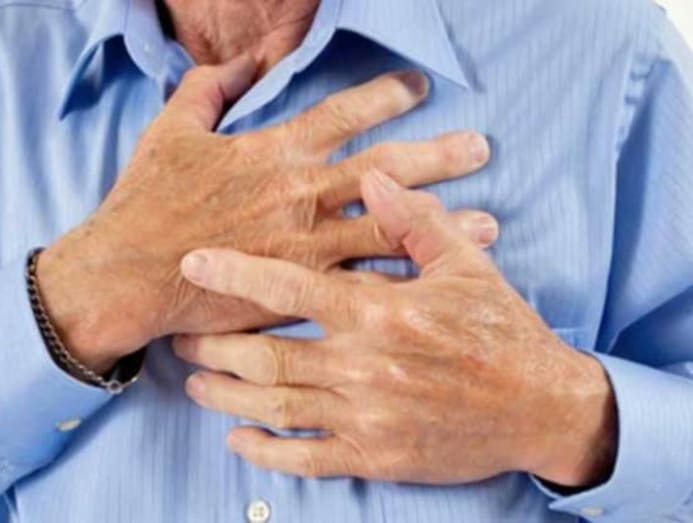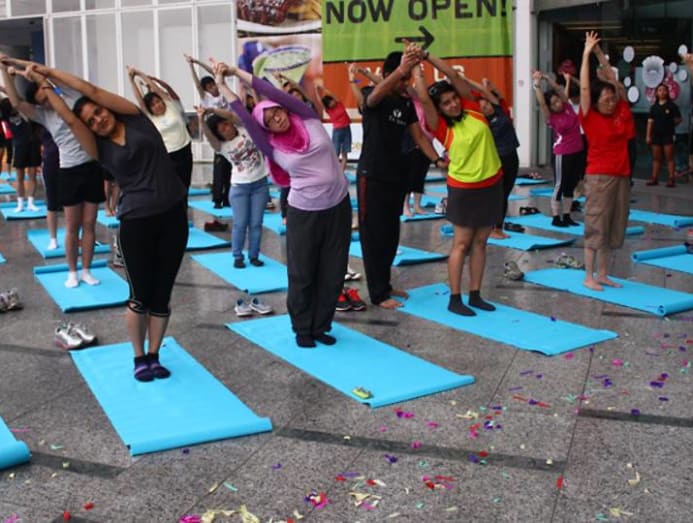Commentary: Let's exercise ownership over our health, not wait for illness to set in
SINGAPORE: It has arguably never been easier to cull good for you options.
We know what nosotros should be eating, drinking and doing to proceed fit, and the nutrient and sports industries take responded with a raft of new products for every taste from reduced fatty muffins to hundreds of calorie-burning classes for every interest and ability level.
Even the fast food industry has jumped on the bandwagon.
Yet chronic diseases are still on the rise in Singapore.
In just one generation, Asia has gone from having one of the lowest rates of heart illness in the world, to one of the highest.
And this trend is showing no signs of abating. According to the World Bank, one-half of all global cases of middle disease will be concentrated in Asia by 2030.
And it'due south not simply heart disease that's on the rise. There are countless other statistics that all make for as grim reading about a host of other chronic conditions likewise.
This should be enough to shock u.s. into action but the Philips Futurity Wellness Alphabetize (FHI) suggests that we're nonetheless not taking this seriously enough.
While the Government and the individual sector have their roles to play in tackling this problem, individuals must take more responsibleness for their own health too.
Although most chronic weather can be prevented through lifestyle changes, it seems that lack of education – for both healthcare providers and patients – is i of the biggest barriers.

Brave NEW WORLD
With recent innovations in consumer technology, nosotros are on the cusp of a dauntless new world where everyday appliances tin can not only encourage healthier habits, but tin also collect relevant information to provide an early warning signal about the onset of illnesses.
Examples include smartphone-based glucose monitors for diabetics, to the potential in the near hereafter for smart toothbrushes that tin can exist used to find an oncoming common cold by spotting changes in saliva.
However, all of this information is merely beneficial if patients know how to interpret and employ it.
But the FHI findings show that Singapore isn't quite there yet.
Nosotros spoke to more than 33,000 people and healthcare professionals across the world and plant that, although the majority of Singaporeans recognise the benefits of continued care applied science, as many equally 35 per cent of those already using it do not understand how to interpret the results.
This mirrors an international challenge that many other developed nations are grappling with. At a time when shopping, banking and even dating online are commonplace, it seems people take more often than not been slower to cover digitalisation in healthcare.
Public education campaigns and grooming, particularly for higher-chance groups like the elderly, can go some way towards addressing this.
Health and consumer technology organisations as well have an important office to play in designing healthcare technologies to be more affordable and accessible to a wider audience beyond early adopters, while the Government tin encourage innovation in this field through subsidies, business organization incentives and incubator schemes.
However, none of this will make a deviation unless individuals modify their own attitudes towards healthcare.

ILLNESS AS TREATMENT
We are accustomed to thinking most healthcare as treating an affliction - you wait until y'all're unwell before going to the doctor and then popping a pill until y'all feel amend.
Many people are also in denial, thinking that serious medical conditions volition never happen to them.
For Singapore to beat out chronic diseases, this mental attitude will need to fundamentally change. While this won't happen overnight, nosotros urgently demand to movement towards a healthcare system – and lodge - that prioritises prevention over cure.
The Ministry of Health'south latest announcement that information technology will become compulsory for all healthcare providers to upload data to the National Electronic Health Record is a huge step in the right direction. Particularly every bit our inquiry finds that as many as 25 per cent of Singaporeans don't feel that they have whatever ownership of their own medical records.
Even so, individuals ultimately demand to take on more personal responsibility for monitoring, managing and maintaining their own health than they currently are. And this needs to happen at every life stage, rather than beingness kick-started past the onset of illness.
Given the engineering science that we have readily bachelor today, not to mention the innovations that are set to become mainstream in the well-nigh future, there is no reason why healthcare shouldn't become function of our daily lives.
Cardiovascular diseases, and other lifestyle-related chronic conditions, are claiming far too many lives.
Information technology's time for us to be a much smarter nation when it comes to healthcare, and to use the technology that we have at our disposal to tackle this killer trouble.
Ivy Lai is land director at Philips Singapore.
Source: https://cnalifestyle.channelnewsasia.com/wellness/commentary-lets-exercise-ownership-over-our-health-not-wait-illness-set-297136
0 Response to "Commentary: Let's exercise ownership over our health, not wait for illness to set in"
Post a Comment